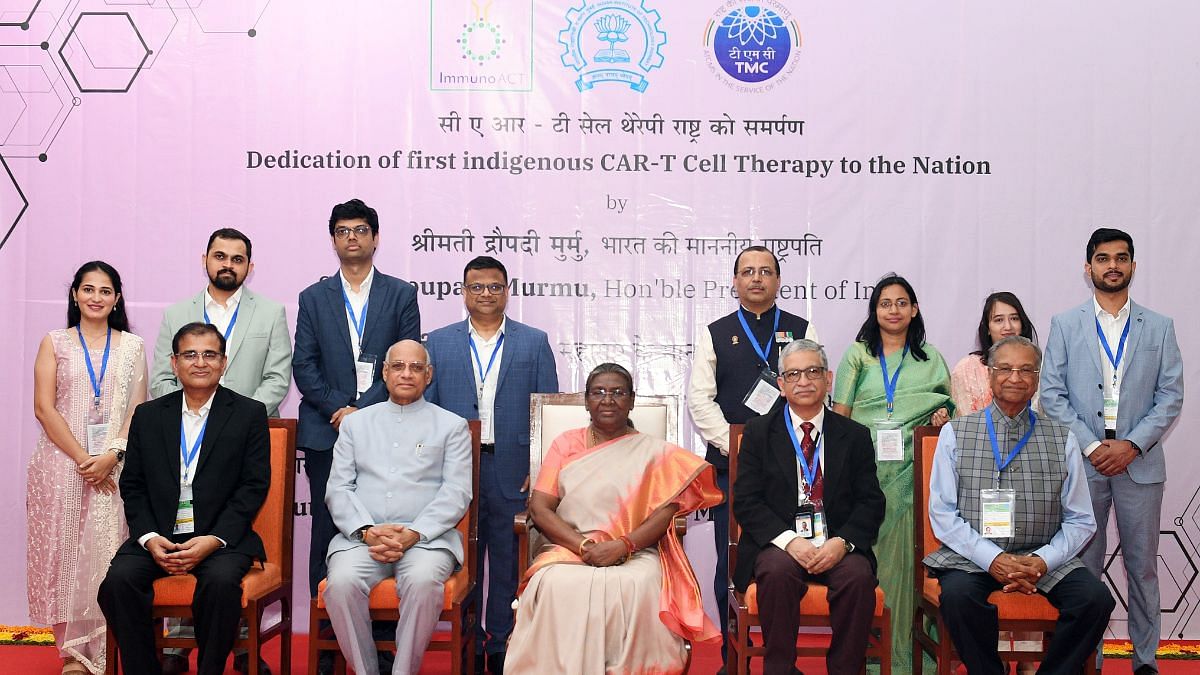The therapy uses our body’s immune cells, called T-cells, a type of lymphocyte or white blood cell.
T-cells are a part of the adaptive immune response and originate in the bone marrow. T-cells can grow into different types of mature T-cells. The two main kinds are killer T-cells and helper T-cells, which together kill infected cells. Helper T-cells activate killer T-cells, which then destroy toxic cells by latching onto them (antigen-binding).
The therapy involves taking out T-cells from a patient’s body, genetically editing them to recognise cancerous cells as foreign bodies that need to be removed, and putting them back into the patient’s body.
These modified cells then flood the system, enabling the body’s immune system to fight off the cancer cells, a feat previously unachievable due to cancer’s ingenious ability to hide from the immune system.
What CAR refers to
T-cells have receptor proteins on their surface. T-cells are genetically modified by fitting them with new receptors called chimeric antigen receptors (CAR). The new cells are then called CAR T-cells.
Chimeric, typically, means a mixture of two. The modified CAR T-cells perform both helper T-cell and killer T-cell functions, i.e., the activating and antigen-binding functions, with the same receptor.
CAR T-cells are grown in a lab and millions of them are transfused back into the patient. Their receptors latch on to specific antigens that they have been modelled to recognise, cancerous ones in this case, and destroy them.
What kind of cancer it works on
CAR T-cell therapies have been approved primarily for various types of blood cancers, i.e., leukaemia.
Most known therapies today are used for patients with B-cell acute lymphoblastic leukaemia (ALL), large B-cell lymphoma, B-cell lymphoma, mantle cell lymphoma, and multiple myeloma.
Findings have shown that CAR T-cell therapy can keep cancer at bay for at least 10 years.
The IIT Bombay centre is expected to treat patients with relapsed-refractory B-cell lymphoma and leukaemia. The DGCI approved the therapy, called the NexCAR19, in October.
There are at least five other CAR T-cell therapies that are now approved internationally, but the technology is available as a treatment only in China, Australia, Singapore, the US, the UK, the EU, and Brazil.
With the inauguration of the IIT Bombay centre, India joins this list.
Collaborative effort
IIT Bombay, Tata Memorial Hospital, and industry partner ImmunoACT — a start-up incubated at IIT Bombay — collaboratively developed the centre.
At the IIT Bombay centre, the one-time genetic therapy costs Rs 40 lakh, more affordable than the over Rs 5 crore cost in wealthier nations today.
Paediatric hemato-oncologist Dr Gaurav Narula of Tata Memorial Hospital and IIT Bombay biosciences faculty member Dr Rahul Purwar led the centre’s development.
Former IIT Bombay students Alka Dwivedi and Atharva Karulkar founded ImmunoACT with Purwar.
India, like most countries, has a high cancer rate. The President said in her address Thursday that 14.6 lakh people succumbed to cancer in 2022. This number, she said, is likely to rise to 15.7 lakh by next year.
(Edited by Madhurita Goswami)
Also read: How does our brain form long-term memories? By breaking & repairing DNA, US study finds

